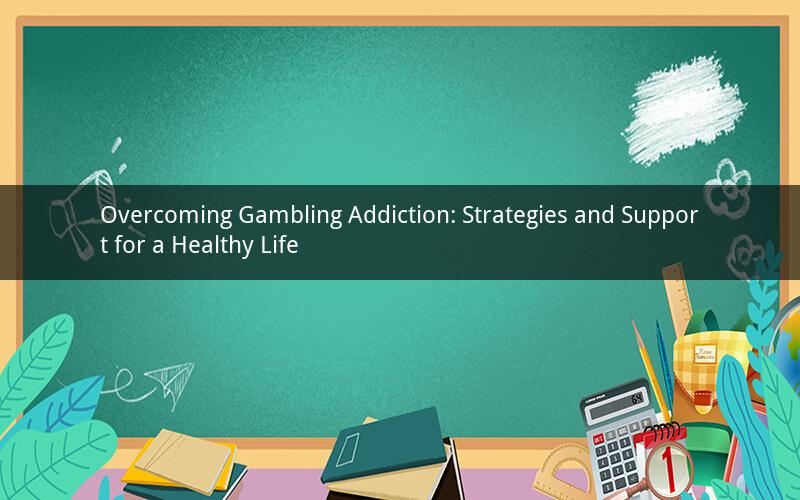
Gambling addiction, also known as pathological gambling, is a serious condition that can lead to financial, emotional, and social problems. If you or someone you know is struggling with this issue, it is crucial to seek help and adopt effective strategies to overcome gambling addiction. In this article, we will explore various methods to tackle this problem and provide information on support systems available for those affected.
1. Understanding Gambling Addiction
Gambling addiction is characterized by an inability to control the urge to gamble, despite negative consequences. It is essential to recognize the signs of gambling addiction to take the first step towards recovery. Common symptoms include secretive behavior, lying about gambling activities, preoccupation with gambling, and increased spending on gambling.
1.1 Identifying Risk Factors
Several factors can contribute to the development of gambling addiction. These include genetic predisposition, exposure to gambling, mental health issues, and personality traits. Understanding these risk factors can help individuals take preventive measures and seek appropriate treatment.
2. Strategies for Overcoming Gambling Addiction
Addressing gambling addiction requires a comprehensive approach that combines various strategies. Here are some effective methods to help you overcome this problem:
2.1 Set Clear Boundaries
Establishing clear boundaries is crucial in managing gambling addiction. This may involve setting a strict budget for gambling activities, limiting the time spent on gambling, and avoiding trigger situations that may lead to relapse.
2.2 Seek Professional Help
Seeking help from a mental health professional is an essential step in overcoming gambling addiction. Therapists can provide personalized treatment plans, including cognitive-behavioral therapy (CBT), which has proven effective in treating addictive behaviors.
2.3 Develop Healthy Coping Mechanisms
Finding healthy coping mechanisms is vital to replace the negative aspects of gambling with positive activities. Engaging in hobbies, exercise, and socializing with non-gambling friends can help reduce the urge to gamble and improve overall well-being.
2.4 Build a Support System
A strong support system is crucial in overcoming gambling addiction. Share your struggles with trusted friends and family members who can offer emotional support and hold you accountable. Joining a support group, such as Gamblers Anonymous, can also provide valuable guidance and encouragement.
2.5 Financial Management
Gambling addiction often leads to severe financial consequences. To address this, it is essential to develop sound financial management skills. Create a budget, prioritize bills, and seek professional financial advice if needed.
3. Support Systems for Gambling Addiction
Several support systems are available to help individuals struggling with gambling addiction. These include:
3.1 Therapy and Counseling
Therapy and counseling services are crucial in addressing the underlying causes of gambling addiction. Mental health professionals can provide personalized treatment plans, including CBT, group therapy, and family therapy.
3.2 Support Groups
Support groups, such as Gamblers Anonymous, offer a safe and supportive environment for individuals struggling with gambling addiction. These groups provide an opportunity to share experiences, learn from others, and gain insights into recovery.
3.3 Financial Counseling
Financial counseling can help individuals struggling with gambling addiction to manage their finances effectively. This may involve budgeting, debt management, and exploring options for debt consolidation or bankruptcy.
3.4 Legal Assistance
In some cases, legal assistance may be necessary to address the consequences of gambling addiction. This may include seeking advice on how to handle legal issues related to gambling debts or criminal charges.
Frequently Asked Questions (FAQs)
Q1: How long does it take to overcome gambling addiction?
A1: The duration of recovery from gambling addiction varies for each individual. Some may experience immediate relief, while others may require long-term treatment and support.
Q2: Can gambling addiction be cured completely?
A2: While it is possible to achieve long-term recovery from gambling addiction, it is important to understand that relapse can occur. Maintaining a strong support system and practicing healthy coping mechanisms are essential for long-term recovery.
Q3: Can therapy alone help in overcoming gambling addiction?
A3: Therapy can be a significant component of overcoming gambling addiction, but it is often most effective when combined with other strategies, such as developing healthy coping mechanisms and seeking support from family and friends.
Q4: Are there any medications available to treat gambling addiction?
A4: Currently, there are no medications specifically designed to treat gambling addiction. However, some medications may be used to address underlying mental health issues that contribute to gambling addiction.
Q5: How can I help a loved one struggling with gambling addiction?
A5: Encourage your loved one to seek professional help and provide emotional support throughout their recovery journey. Offer to accompany them to therapy sessions or support group meetings, and be patient as they work through their addiction.
In conclusion, overcoming gambling addiction is a challenging but achievable goal. By understanding the causes, adopting effective strategies, and seeking support from professionals and support groups, individuals can take the necessary steps to regain control of their lives. With determination and a strong support system, recovery from gambling addiction is possible.